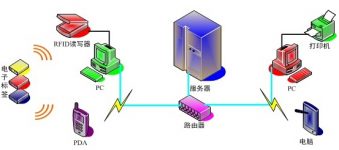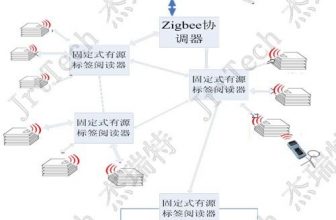
RFID Invoicing Chain Store Management System
[ad_1]
1. Brief introduction
Under the catalysis of information technology, the transformation of the world economy has entered a state of acceleration. The integration of the world economy, the globalization of business operations, and the highly personalized and rapidly changing customer needs caused by high competition have made the relationship between companies and customers, companies and suppliers closer and more complex. Strengthening management, standardizing business processes, improving transparency, accelerating commodity capital turnover, and laying the foundation for a comprehensive network of information management in the circulation field are the dream wishes of sales companies and even many commercial enterprises.
Small and medium-sized enterprises have an important position in my country’s economic development. At present, my country’s small and medium-sized enterprises have a large number of small and medium-sized enterprises, which are widely distributed in regions and have a large span of industry distribution. With the development of global economic integration and China’s accession to the WTO, SMEs will face foreign companies and foreign The severe challenges of products and services. Comparatively speaking, foreign-funded enterprises have stronger financial strength, rich management experience and advanced technical means. Therefore, if my country’s small and medium-sized enterprises do not use advanced management ideas to change their business concepts and use information To improve the management level and work efficiency of enterprises, it will be difficult to win in the future international competition. However, enterprise management must be done with the help of informatization in many aspects, and the informatization level of my country’s small and medium-sized enterprises is still very low. Compared with foreign-funded enterprises, it is still in its infancy.
With the development of technology, computer operations and management have become more simplified, computer knowledge has become more popular, and the market economy is rapidly changing and competition is fierce. Therefore, it has become a trend and inevitable for enterprises to use computers to manage purchases, inventory, and sales.
2. Program overview
It adopts TCP/IP-based Ethernet network structure, B/S software architecture, and RFID technology to realize digital management of goods purchase, sale and inventory.

3.2. Item management
The management of items mainly includes purchasing, warehousing, inventory, sales, outgoing, query, etc., as shown in the figure below.

Items are purchased and stored in the warehouse, and the items are identified by electronic tags, and the electronic tag data and item information are stored in the server together to realize the record of the items in the warehouse. There are two main ways to initialize the label: 1. Connect the PC to the RFID reader, write the data first, and then paste the label on the article; 2. PDA handheld machine, paste the label directly on the article, PDA scans and enters the data .
After the goods are sold out of the warehouse, you can check the goods storage information (item information, item price) through the PDA handheld machine only by scanning the label. After the item sales reach an agreement, you only need to enter the sales price to complete the sales information of the item. Convenient
3. Introduction to basic functions
The software adopts the B/S structure, just open the browser and enter the website address to log in to the system. The software interface is clear, the functions are comprehensive and practical, and the operation is simple and convenient. The interface after system login is as follows.

System software main interface
The software mainly consists of seven modules: purchase management, inventory management, sales management, data statistics, item tracking, information management, and system help, covering item information management.
[ad_2]



